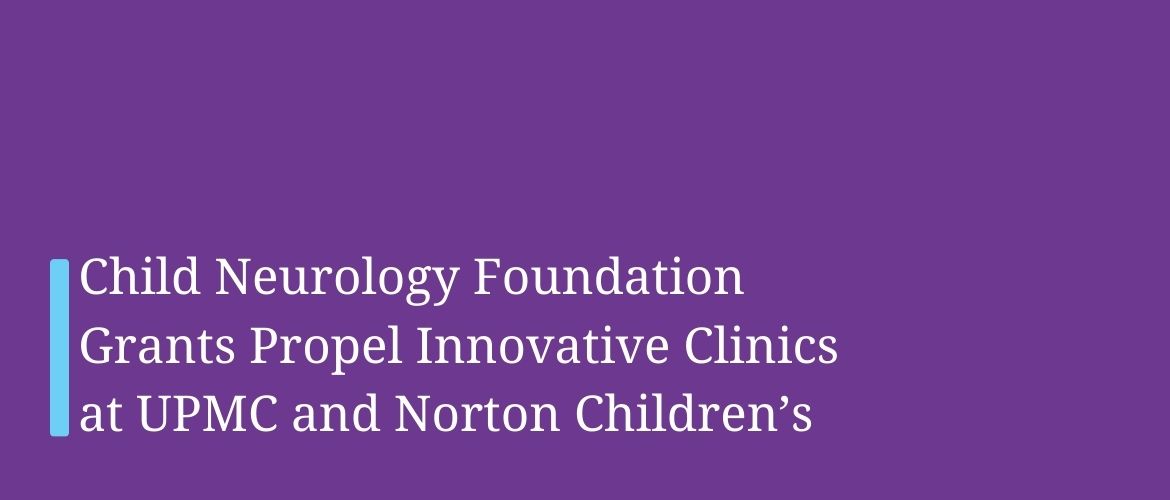


UPMC Children’s Hospital of Pittsburgh
Principal Investigator (PI): Dr. Laura Kirkpatrick
UPMC Children’s Hospital of Pittsburgh
Dr. Kirkpatrick is an Assistant Professor of Pediatrics with a secondary appointment in Neurology at the University of Pittsburgh. She’s a child neurologist and a pediatric epilepsy specialist at the University of Pittsburgh Medical Center Children’s Hospital of Pittsburgh.
Dr. Kirkpatrick will use the CNF grant funding to develop a novel Epilepsy Transition Clinic at the University of Pittsburgh Medical Center Children’s Hospital of Pittsburgh in partnership with Dr. Anto Bagić, who is the Chief of the adult Comprehensive Epilepsy Center at the hospital so that there is participation from both adult and child neurologists. “This clinic will be different from other transition clinics because we are predominantly working with patients that historically have been considered challenging to transition, including those with very intractable epilepsy and a high degree of medical complexity,” Dr. Kirkpatrick told CNF.
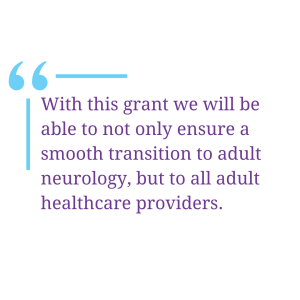

Dr. Kirkpatrick, UPMC Children’s Hospital of Pittsburgh
By addressing the physical, mental, and social needs of young people as they prepare to transfer to adult neurology care, Dr. Kirkpatrick believes that her team will reach their goal of “not only a smooth transition to adult neurology, but to all adult healthcare providers.” Dr. Kirkpatrick believes that by assessing the young person and family’s readiness for transition, including behavioral health support needs and connecting them to resources for social determinants of health (transportation, housing, employment, legal resources, etc) related to transition, and coordination between pediatric and adult neurologists to ensure that there is no interruption of care can work to improve the quality of the transition of care. She and her team, headed by a dedicated social worker and research assistant, will track data across a young person’s transition to adult care to be able to teach others about what they’ve learned.
According to Dr. Kirkpatrick, success is a permanent transition to adult healthcare for these individuals. “Historically, our division has had challenges with patients and families trying to return to the children’s hospital for care after an attempted transition.” In addition to helping families with what she calls the “anticipatory anxiety” about transition by partnering with them throughout the process, she and her team also plan on educating pediatric neurologists to better prepare them to have transition conversations sooner.
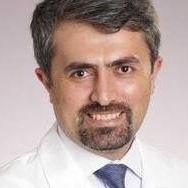

Norton Children’s Hospital, University of Louisville
Co-Principal Investigators: Dr. Cemal Karakas
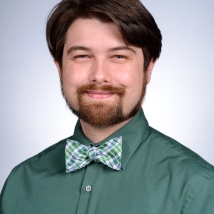

Norton Children’s Hospital, University of Louisville
Co-Principal Investigators: Dr. Jaime Shoup
University of Louisville
Dr. Karakas is a pediatric epileptologist at the University of Louisville, where he also serves as the Program Director of the Epilepsy Fellowship Program. Dr. Shoup is a PGY-6 Epilepsy Fellow who is interested in neurodevelopment with a focus on autism. Together, they are leading project at the University of Louisville Norton Childrens Hospital aimed at improving the quality of transition of care. “We hope to shed light on typical issues patients and families face during the transition process to allow other neurologists greater insight into the process,” Dr. Shoup told CNF.
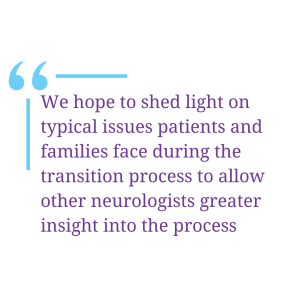

Dr. Shoup, University of Louisville
The team will do this using CNF’s 8 Common Principles to create age- and developmentally-appropriate education materials to share with patients, as well as their own transition-readiness tool, checklist, and personalized care plans which will be integrated into their EMR system. By doing so, the team will be able to assess readiness better and more easily track data to foster consistency and thoroughness in the care they deliver. “This work will allow for a more concerted and systematic approach to the implementation of a transition of care program, which we hope can be replicated across the country to improve this process on a larger scale,” said Dr. Shoup.
The team will use the CNF grant funding to study the effectiveness of these tools by partnering with CNF Transition of Care expert panelist Dr. Michael Sowell, who is an adult neurologists at the University of Louisville. Together, they will track data, evaluate, and find ways to systematically improve the transition process, working toward more patient-centered care for young adults with epilepsy and intellectual disabilities. Dr. Shoup told us that “a successful study will be one that completely captures the current state of this transition process, informing us what aspects are vital to a successful transition program at our institution. We also hope to demonstrate that by addressing these areas of concern, a more streamlined process of transition can be practically implemented.”

